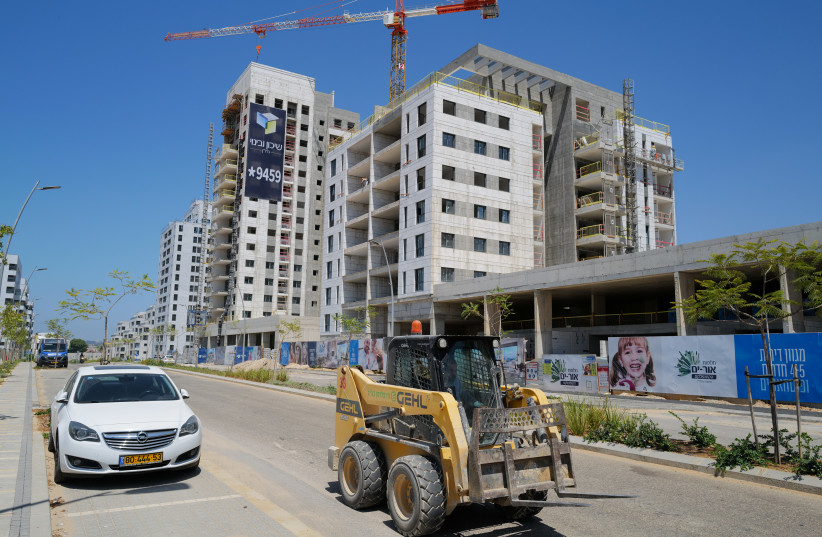As the cost of living in Israel continues to rise steadily, the increasing price of housing represents one of the most impactful trends on the country’s residents as it influences the cost of both rent and mortgage.
According to a new report from the Central Bureau of Statistics, housing costs rose by 1.1% from August to September, marking a 19.8% year-on-year rise. This increase is the latest in a series of gradual hikes in the real estate market.
This increase took place in the prior two-month period recorded by the CBS; with this in mind, a few factors have come to light since September that may reflect well in the October-November report, including news from the Finance Ministry that the number of mortgages has recently decreased, signaling lower demand that could lead to lower prices down the road, as well as an increase in the amount of housing construction starts that were set underway this year.
One of the causes for the current rise in housing costs is a lack of housing starts initiated during the early stages of COVID, which led to a lack of supply to meet the demand dictated by Israel’s first-in-class birth rate.
However, more housing starts have been promoted by the government this year, which could lead to better prices in two to three years — and potentially even sooner, noted Professor Danny Ben-Shahar, faculty member and director of the Alrov Institute for Real Estate Research at the Coller School of Management, Tel Aviv University.

“While that does not affect the market immediately, it does affect the market in terms of expectations. So there's a lot of voices talking about these large numbers of housing starts that will come into the market in the future,” he explained. That narrative could decrease demand, as potential buyers decide to wait it out until the promised decrease comes (or so they would hope).
“People do expect to see pricing somewhat standardized due to the housing start completion that will come into the market in the future,” Ben-Shahar said.
According to Ben-Shahar, the incoming government needs to address the present issue of housing costs by taking immediate action. “The government should make sure that there's a constant and large supply of land for new constructions. And when I say large supply, I'm talking about the construction of no less than 60,000 new housing units, and this number will increase as the population increases,” he said.
As well, Ben-Shahar emphasized that in order to ensure the stabilization of the housing market, the government needs to make the housing construction process much easier to deal with.
“The government needs to make supply more flexible and to make the processes [involved] less bureaucratic so that the market can act in a healthier way,” he said.
